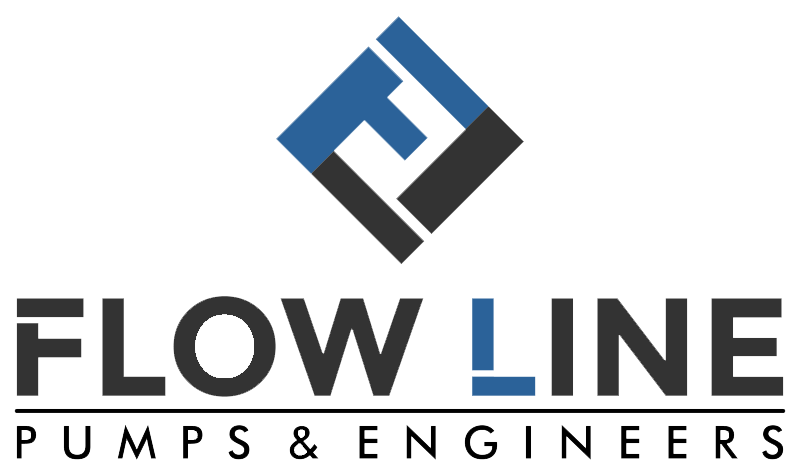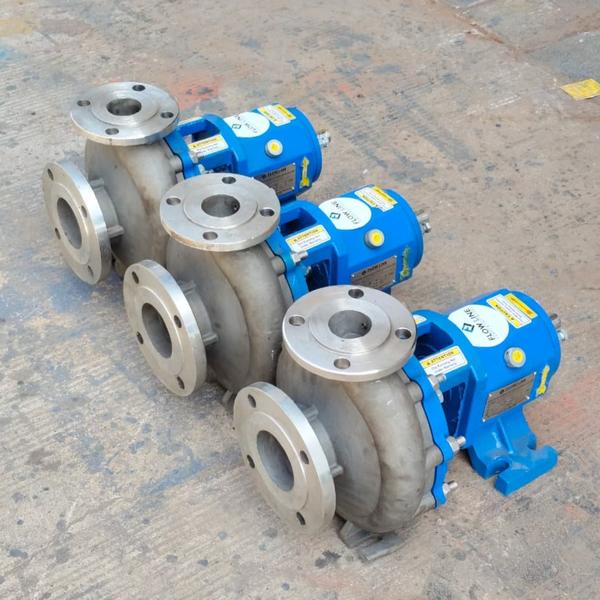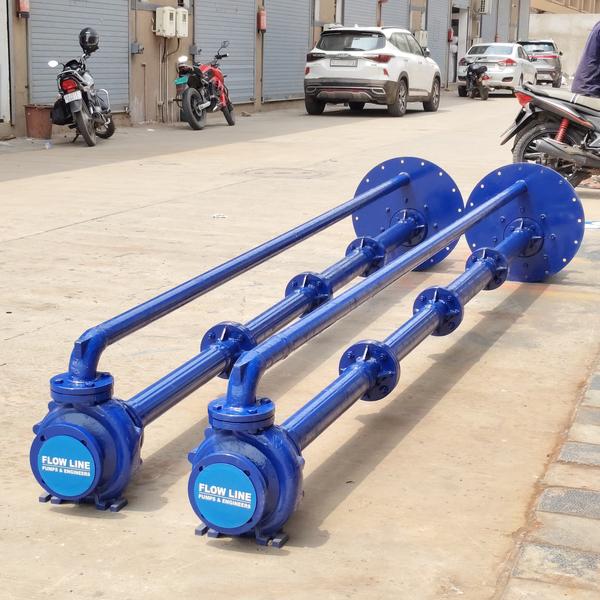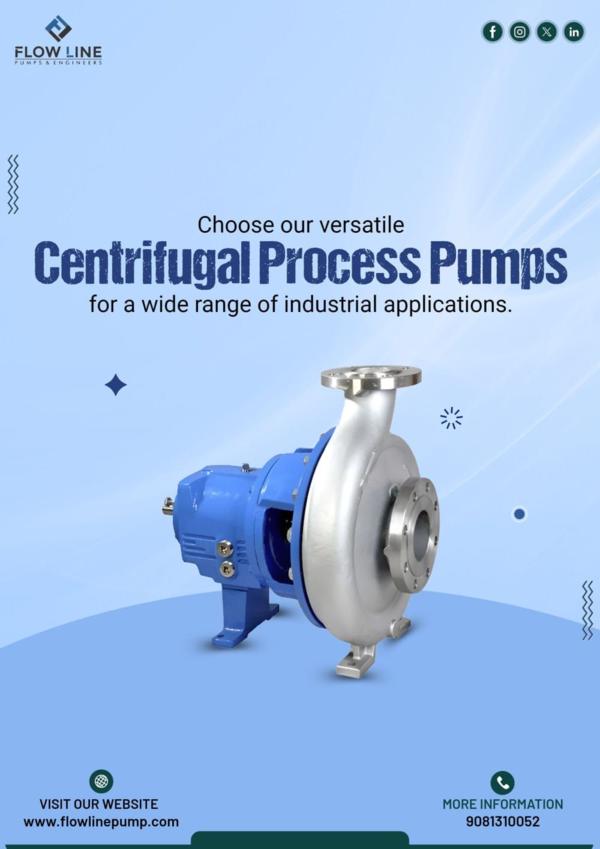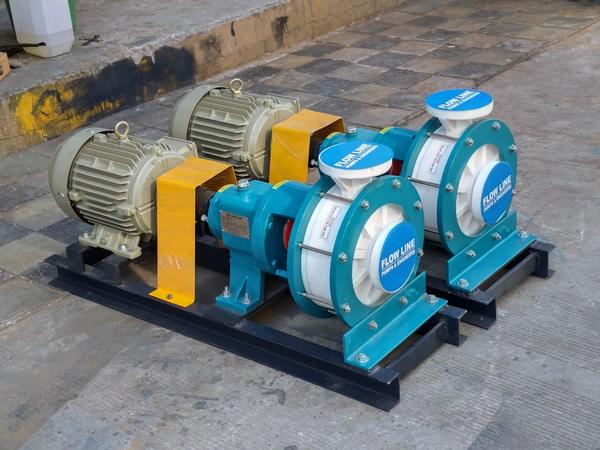Closed Impeller Centrifugal Chemical Process Pump
Closed Impeller Centrifugal Chemical Process Pump in india
Closed Impeller Centrifugal Chemical Process Pump in ahmedabad
Closed Impeller Centrifugal Chemical Process Pump in gujarat
What is a Closed Impeller Centrifugal Chemical Process Pump?
A closed impeller centrifugal chemical process pump is a type of pump designed to move liquids through a system using centrifugal force. The “closed impeller” refers to the impeller design, where the blades are enclosed within a casing, providing a more efficient and stable pumping process. These pumps are particularly suited for handling chemicals, including corrosive, viscous, or volatile substances, in various industrial processes.
In a centrifugal pump, the liquid is drawn into the center of the impeller and is then forced outward by the blades' rotation. The closed impeller design helps to maximize the pump’s ability to manage high-pressure applications while minimizing the risk of leaks or contaminants entering the system. Closed impeller pumps are widely used in flowline systems, where liquids need to be moved over long distances through pipelines.
Why Closed Impeller Centrifugal Pumps are Ideal for Flowline Applications
1. Efficient Handling of Aggressive Chemicals
Chemical processing often involves liquids that are highly corrosive, abrasive, or hazardous to handle. Closed impeller centrifugal chemical process pumps are engineered with materials that can withstand exposure to such substances. Whether it’s sulfuric acid, hydrochloric acid, or caustic solutions, the closed impeller design and robust materials ensure that these harsh chemicals can be transported safely and efficiently without compromising the integrity of the pump or system.
Moreover, the sealed design of the closed impeller pump minimizes the risk of chemical leakage, a critical concern in industries dealing with dangerous substances.
2. Consistent and Reliable Flow
One of the defining features of a centrifugal pump is its ability to maintain a continuous flow of liquids. Closed impeller centrifugal chemical process pumps provide steady, uniform flow rates, even under varying pressure conditions. This consistency is vital in flowline applications where a stable and uninterrupted flow of chemicals is necessary for safe and efficient operation. The design of the closed impeller minimizes turbulence and ensures that the liquid is moved with minimal energy loss, making it an energy-efficient solution for handling chemicals in industrial processes.
3. High Efficiency and Energy Savings
The closed impeller design is highly efficient, as it allows for maximum fluid displacement with minimal power consumption. In flowline pumping systems, where large volumes of chemicals need to be transported, energy efficiency plays a significant role in reducing operating costs. By ensuring that less energy is required to maintain the flow, these pumps contribute to lower utility bills and a more sustainable operation.
4. Durability and Long-Term Performance
Chemical process pumps often need to operate in demanding conditions for extended periods. The closed impeller centrifugal pump is built with durability in mind, featuring high-quality materials such as stainless steel, duplex steel, or other corrosion-resistant alloys. These pumps are designed to handle the wear and tear of abrasive chemicals, offering long-lasting performance and reducing the need for frequent maintenance or replacements.
Additionally, the closed impeller design minimizes internal wear, as the impeller blades are shielded from direct contact with the pumped liquid, ensuring longevity and reduced maintenance costs.
5. Customizable for Specific Chemical Handling Needs
Closed impeller centrifugal chemical process pumps are available in various configurations to suit specific applications. With different materials of construction, such as acid-resistant metals or specialized coatings, these pumps can be customized to meet the unique demands of different chemicals or industrial processes. This flexibility ensures that your pump is optimized for the specific chemical flow requirements in your system.
Key Considerations When Choosing a Closed Impeller Centrifugal Chemical Process Pump for Flowline Applications
When selecting a closed impeller centrifugal pump for your flowline system, there are several key factors to consider:
Chemical Compatibility: Ensure that the materials of the pump’s construction are compatible with the chemicals being pumped. This includes assessing factors like corrosion resistance and the ability to handle specific temperature ranges.
Flow Rate and Head Requirements: Determine the required flow rate and system head for your application. The pump’s performance curves will help you match the pump’s capabilities with the needs of your system, ensuring reliable operation.
Pump Material: Choose a pump with materials that offer high resistance to chemical erosion, wear, and corrosion. Stainless steel, titanium, and alloys designed for chemical resistance are popular choices for these types of pumps.
Seal Design: The pump's sealing system should be robust enough to prevent leaks of hazardous or volatile chemicals. Mechanical seals or double seals with secondary containment are often recommended for chemical process pumps.
Pump Size and Configuration: Select a pump that fits the available space in your flowline system while ensuring that it can deliver the necessary performance. Consider factors like pump casing design, mounting options, and the ease of installation and maintenance.
Applications of Closed Impeller Centrifugal Chemical Process Pumps
Closed impeller centrifugal chemical process pumps are essential in many industries, particularly where hazardous or corrosive chemicals need to be transported. Some key applications include:
Chemical Manufacturing: These pumps are commonly used in the transportation of raw chemicals, intermediate products, and final products within manufacturing plants.
Petrochemical Industry: In oil and gas processing, these pumps are employed to move refined chemicals and petrochemical by-products through flowlines.
Pharmaceutical Industry: Used to pump a variety of liquids, including solvents, reagents, and chemical intermediates used in drug manufacturing.
Water Treatment Plants: These pumps can also be used to transport chemicals like chlorine, ferric chloride, or other treatment agents in water and wastewater facilities.
Mining: In mining operations, they are used for transporting slurry or chemicals used in extraction processes.
Conclusion
The closed impeller centrifugal chemical process pump is an indispensable piece of equipment for handling aggressive chemicals in flowline pumping applications. With its efficient performance, energy savings, and ability to handle corrosive or hazardous substances, this pump type is built to meet the high demands of industrial and chemical processing systems.
